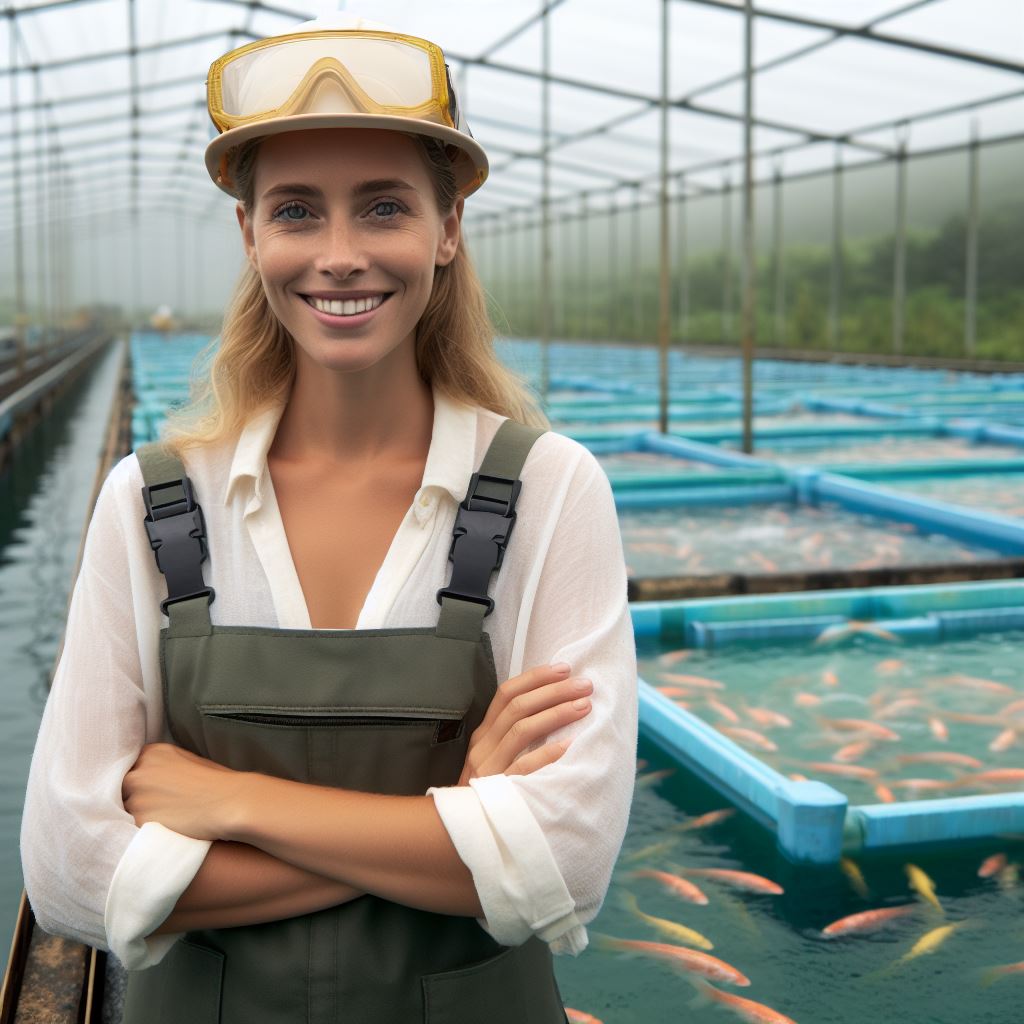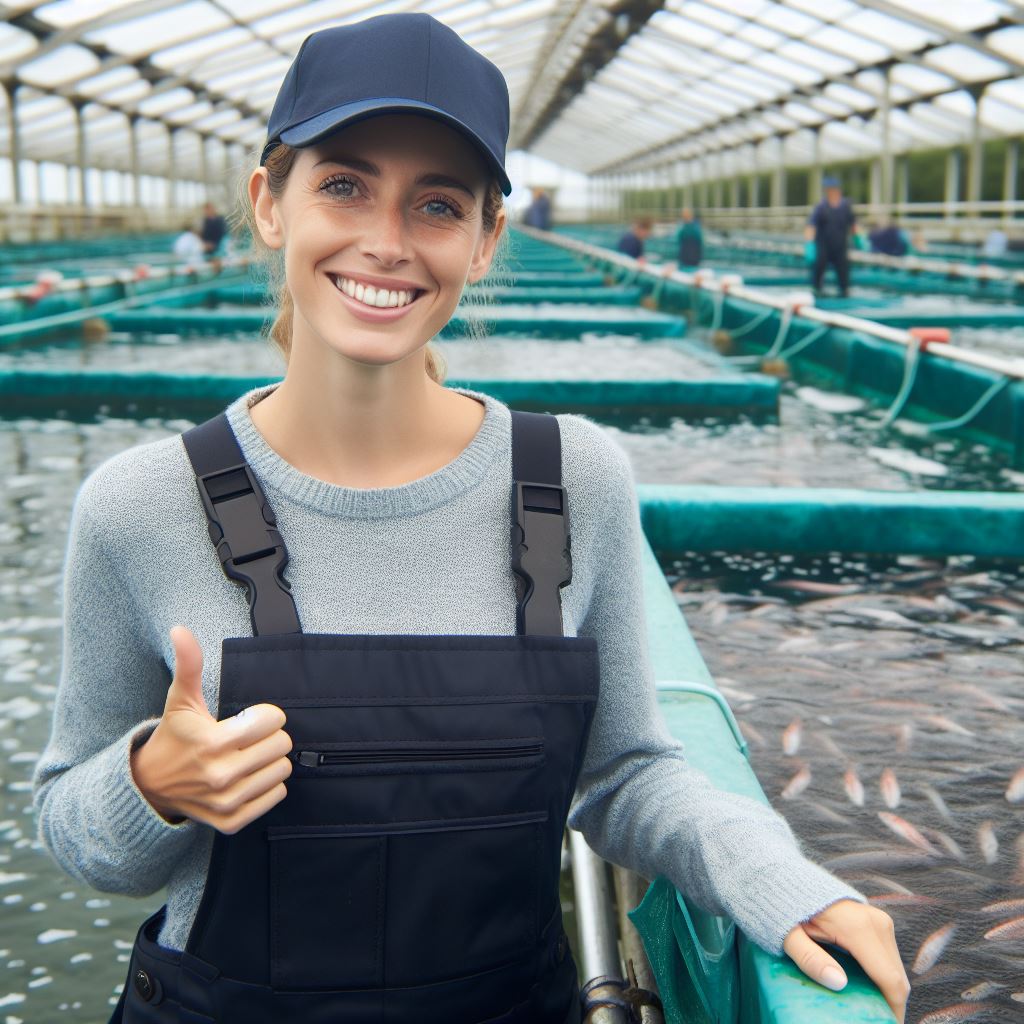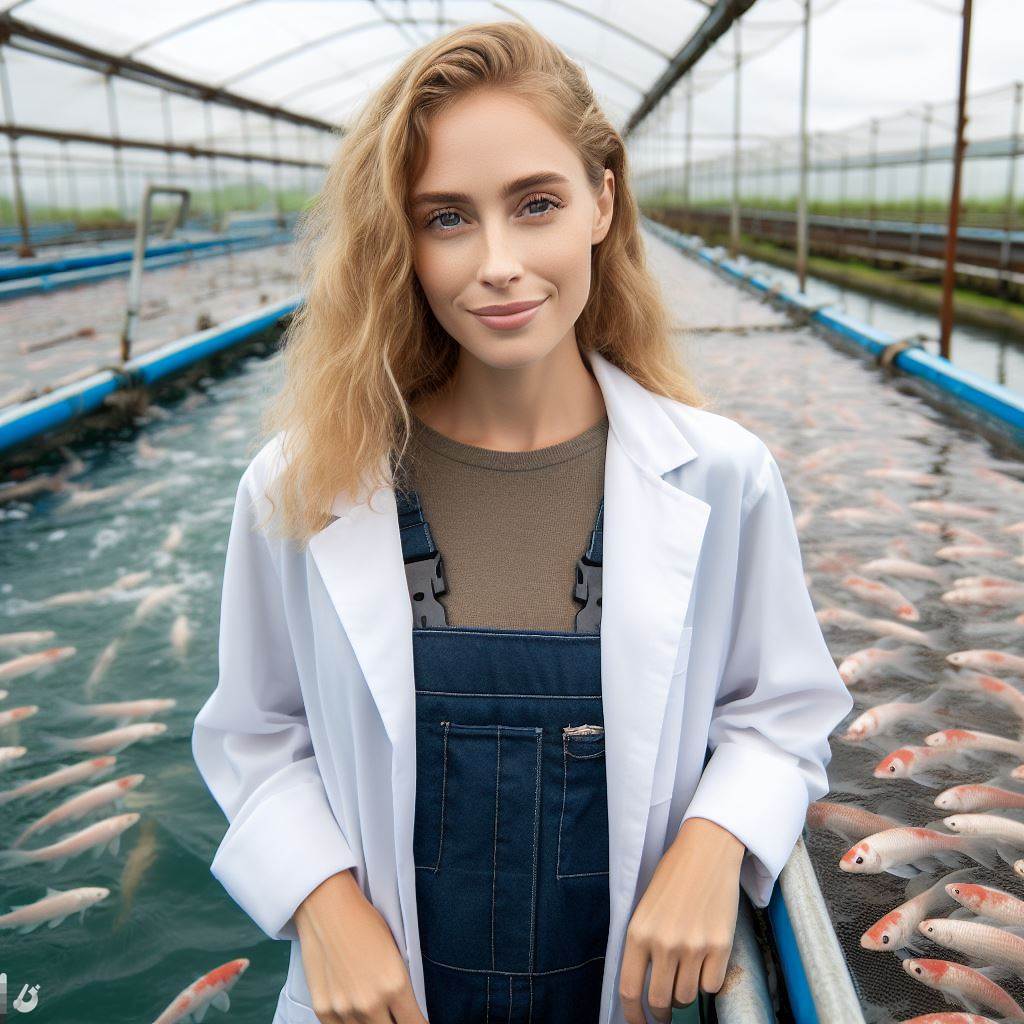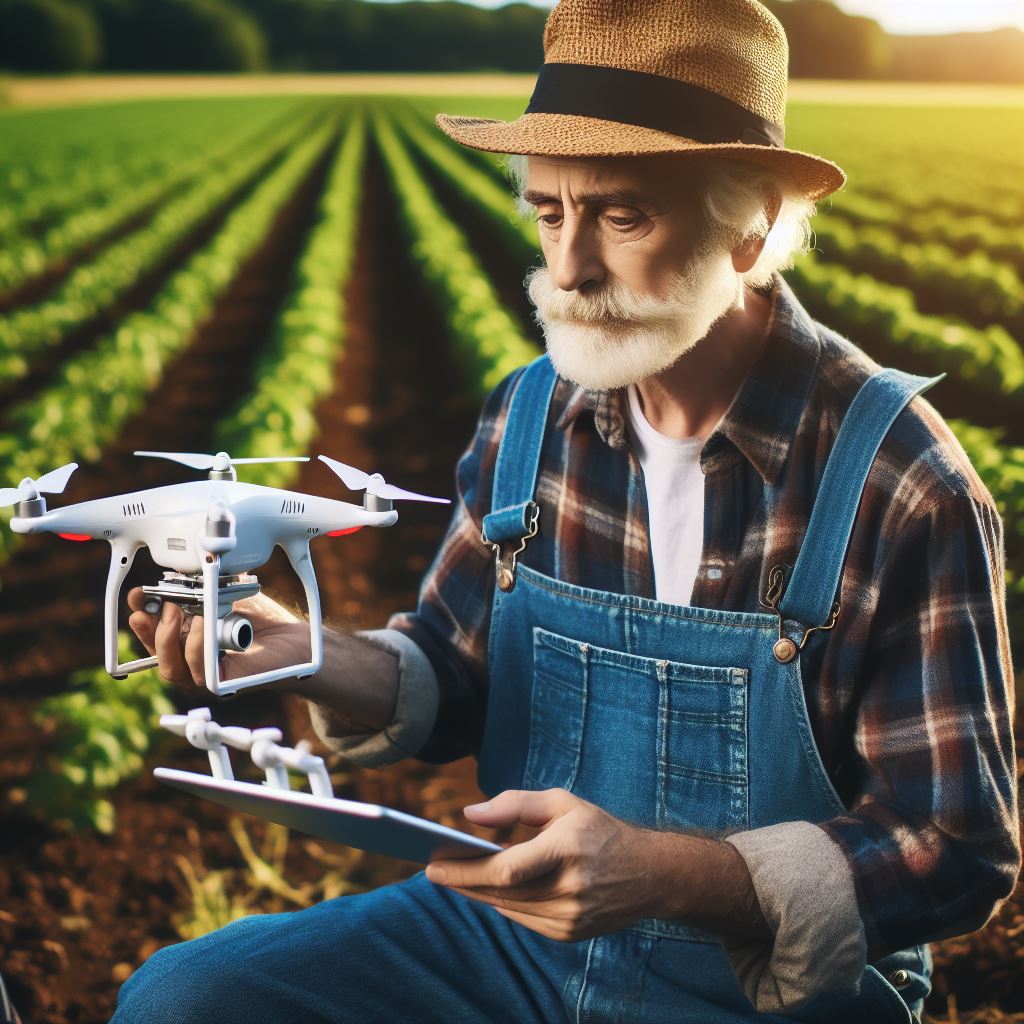Introduction
Aquaculture is the practice of cultivating aquatic organisms, including fish, shellfish, and plants, in controlled environments.
It plays a crucial role in the UK’s food security and sustainable seafood production.
Navigating UK aquaculture involves understanding the various technological advancements that are driving the industry forward.
Explanation of Aquaculture
Aquaculture, also known as fish farming, involves the breeding, rearing, and harvesting of aquatic organisms in tanks, enclosures, or nets.
This method provides an alternative to wild-caught seafood, ensuring a steady supply of fish and reducing pressure on dwindling natural populations.
Importance of Aquaculture in the UK
The UK heavily relies on seafood imports, but aquaculture offers the opportunity to increase domestic production and decrease dependency on foreign sources.
This is particularly important considering the uncertainties surrounding global fisheries and the need for sustainable food production.
Overview of Navigating UK Aquaculture
Navigating the UK aquaculture industry requires understanding the advancements in technology that have revolutionized the sector.
These include innovations in monitoring and control systems, sustainable feed options, genetic advancements, and improved fish health management techniques.
Technological advancements have allowed for precise monitoring and control of water conditions, optimizing growth and reducing disease outbreaks.
Sustainable feed options, such as alternative protein sources and feeding practices, address environmental concerns and minimize reliance on wild fish stocks.
Advancements in genetics have led to the development of disease-resistant and faster-growing fish breeds, improving the efficiency and productivity of aquaculture operations.
Improved fish health management techniques, such as vaccination and biosecurity measures, ensure the well-being of the farmed organisms.
Basically, navigating UK aquaculture involves staying up to date with the technological advancements driving the industry’s growth.
These advancements contribute to sustainable seafood production, food security, and reduced environmental impact, making aquaculture a vital component of the UK’s food system.
History of Aquaculture in the UK
Overview of the early years
Aquaculture, the farming of fish and other aquatic species, has a rich history in the United Kingdom.
In this section, we will provide a brief overview of the early years, highlight some landmarks in the development of aquaculture, and discuss the introduction of technological advancements.
Brief Overview of the Early Years
- Aquaculture has been practiced in the UK for centuries, with evidence of fish ponds dating back to Roman times.
- During the Middle Ages, monasteries played a significant role in fish breeding and management, constructing fish ponds and tanks.
- In the 1800s, fish culture expanded with the establishment of trout hatcheries and the introduction of non-native species.
Landmarks in the Development of Aquaculture in the UK
- The 19th century saw the founding of the Fishmongers’ Company, an influential organization that promoted fish farming in the UK.
- In the early 20th century, the Marine Biological Association (MBA) conducted ground breaking research on fish reproduction and the science of fish farming.
- During World War II, the government encouraged fish farming to supplement food supplies and ensure domestic sustainability.
- In the 1960s, the establishment of government-run research centers focused on marine aquaculture led to significant advancements.
Introduction of Technological Advancements
- Technological advancements have revolutionized the UK aquaculture industry, boosting production and sustainability.
- The use of modern recirculating aquaculture systems (RAS) allows for efficient water usage and control of environment conditions.
- Automated feeding systems enable precise nutrition management, optimizing growth rates and minimizing waste.
- Monitoring and sensing technologies provide real-time data on water quality and fish behavior, facilitating proactive management.
- Biosecurity measures have improved through the implementation of advanced filtration systems and disease detection tools.
In essence, the history of aquaculture in the UK is characterized by a gradual development from traditional fish ponds to modern, technology-driven farms.
Landmarks such as the establishment of fish farming organizations, scientific research, and government support have played vital roles in shaping the industry.
With the introduction of technological advancements, the UK aquaculture sector has become more efficient, sustainable, and productive than ever before.
Read: UK Aquaculture Technician: Career FAQs
Tech advancements revolutionizing UK aquaculture
Technology advancements have significantly revolutionized the aquaculture industry in the UK.
With the use of smart farming techniques, automated feeding systems, remote monitoring and control, and precision aquaculture technologies, the sector has seen remarkable advancements.
Smart farming techniques
Smart farming techniques have played a crucial role in enhancing the efficiency and productivity of UK aquaculture.
These techniques involve the use of sensors and data analytics to monitor various parameters such as water quality, oxygen levels, and feed requirements.
By analyzing this data in real-time, farmers can make informed decisions to optimize production and minimize environmental impact.
Personalized UK Career Consulting
Receive tailored career guidance designed just for you. Get actionable steps and expert support to boost your career in 1-3 days. Take control of your career now.
Get StartedAutomated feeding systems
The introduction of automated feeding systems has further improved the overall efficiency of aquaculture operations in the UK.
These systems utilize advanced algorithms and sensors to accurately dispense feed based on the specific needs of each fish population.
This ensures that the fish receive optimal nutrition, leading to faster growth rates and reduced feed wastage.
Remote monitoring and control
Remote monitoring and control have emerged as game-changers in the UK aquaculture industry.
Through the use of IoT (Internet of Things) devices and cloud-based platforms, farmers can remotely monitor and control various aspects of their operations.
This includes monitoring water quality parameters, adjusting feeding schedules, and even detecting early signs of disease outbreaks.
By having real-time access to critical information, farmers can promptly respond to issues, minimizing losses and optimizing production.
Adoption of precision aquaculture technologies
The adoption of precision aquaculture technologies has also contributed to the advancements in the UK aquaculture sector.
These technologies involve the use of advanced imaging systems, such as underwater cameras and drones, to monitor fish behavior and health.
By analyzing the collected data, farmers can identify any signs of stress or disease, enabling early intervention and improved fish welfare.
In addition to the above advancements, there are several other promising technologies being explored in the UK aquaculture industry.
AI enables predictive modeling and decision-making. Genetic engineering creates disease-resistant fish breeds. Aquaculture facilities use renewable energy sources.
The integration of technology advancements in the aquaculture industry has not only improved efficiency and productivity but also has tremendous potential for sustainable development.
By optimizing resource utilization and minimizing environmental impact, these advancements are paving the way for a more sustainable and resilient industry.
Your Dream Job Starts with a Perfect CV
Get a tailored CV and cover letter that captures your unique strengths and stands out in your industry. Let us help you make an unforgettable first impression.
Get StartedIn a nut shell, the UK aquaculture industry has witnessed significant advancements due to tech innovations.
The use of smart farming techniques, automated feeding systems, remote monitoring and control.
Precision aquaculture technologies has revolutionized operations, improving efficiency and productivity.
With ongoing research and development, the future looks bright for the industry, promising further breakthroughs and sustainable growth.
Read: Aquaculture Law: UK Regulations Explained

Benefits of tech advancements in UK aquaculture
In recent years, the UK aquaculture industry has witnessed significant advancements in technology, bringing about numerous benefits and transforming the way fish farming is approached.
These advancements have had a positive impact on various aspects of the industry, including productivity, efficiency, fish health and welfare, environmental impact, and economic advantages.
Increased Productivity and Efficiency
- Integrating automation and data-driven processes has led to increased productivity and efficiency in UK aquaculture.
- Automated feeding systems monitor and provide precise amounts of food, optimizing growth and reducing waste.
- Remote monitoring technologies enable real-time data collection, identifying any issues promptly for swift resolution.
- Improved water quality management systems maintain optimal conditions for fish health and growth, further enhancing productivity.
Improved Fish Health and Welfare
- Technological advancements have significantly improved fish health and welfare in the UK aquaculture sector.
- Smart sensors monitor water quality parameters, ensuring optimal conditions and reducing the risk of diseases.
- Identification and tracking systems help prevent overcrowding and monitor individual fish behavior for early disease detection.
- Advanced vaccination techniques and disease management systems have reduced mortality rates, enhancing overall fish welfare.
Reduction in Environmental Impact
- Technological advancements have played a crucial role in reducing the environmental impact of UK aquaculture.
- Efficient waste management systems and the utilization of advanced filtration methods minimize the release of pollutants.
- Monitoring systems prevent the accidental escape of farmed species, preventing potential ecological disruptions.
- Smart aquaculture systems promote sustainable practices by optimizing resource usage and reducing water and energy consumption.
Economic Advantages for the Industry
- The incorporation of technology has brought significant economic advantages to the UK aquaculture industry.
- Automation and efficient processes reduce labor costs, enabling farms to allocate resources more effectively.
- Increased productivity and improved fish quality result in higher yields and profits for aquaculture businesses.
- Technological advancements have also attracted investments and funding, driving further innovation and growth in the industry.
In review, the benefits of technological advancements in UK aquaculture are multi-faceted.
Improved productivity and efficiency, enhanced fish health and welfare, reduced environmental impact, and economic advantages have all contributed to the industry’s positive transformation.
The integration of technology has made fish farming more sustainable, profitable, and environmentally responsible, ensuring a bright future for the UK aquaculture sector.
Read: Aquatic Health Management by UK Experts
Learn More: Forestry Policy Changes in the UK
Challenges and Concerns in Embracing Tech Advancements
Implementing new technologies in the UK aquaculture industry comes with several challenges and concerns that need to be carefully addressed.
Initial Cost of Implementing New Technologies
- The upfront investment required for adopting and integrating new technologies can be quite substantial.
- Aquaculture businesses may face financial constraints when it comes to purchasing and implementing these advancements.
- However, it is important to consider the long-term benefits and potential return on investment that these technologies can offer.
- Industry stakeholders should explore funding opportunities and financial assistance programs to help alleviate these initial costs.
Training and Skill Development for Industry Professionals
- The integration of new technologies often demands a higher level of technical expertise from industry professionals.
- Training programs and skill development initiatives need to be implemented to ensure that the workforce is equipped with the necessary knowledge and capabilities.
- Collaboration between industry, academia, and training organizations can help bridge the skills gap and provide relevant training.
- Continuous learning and upskilling will be crucial to keep up with the rapid advancements in aquaculture technology.
Potential Displacement of Certain Job Roles
- As technology advances, there is a concern about the potential displacement of certain traditional job roles within the aquaculture industry.
- Automation and robotics may replace some manual labor-intensive tasks, leading to reduced employment opportunities.
- Industry stakeholders must identify strategies to address this issue, such as retraining and redeploying displaced workers into new roles created by technological advancements.
- The industry should focus on creating jobs that complement and synergize with technological innovations.
Ethical Considerations and Potential Risks
- The adoption of new technologies raises ethical considerations and potential risks that need to be carefully evaluated.
- There may be concerns regarding the welfare of aquatic organisms, environmental impacts, and data security.
- Regulatory frameworks and best practices need to be established to ensure responsible and ethical use of technology in aquaculture.
- Constant monitoring and assessment of technological implementations will be essential to mitigate potential risks and address ethical concerns.
In fact, embracing tech advancements in UK aquaculture presents various challenges and concerns. However, these must be overcome to unlock the industry’s full potential.
Address initial costs, train and develop skills, manage job displacement, and ensure ethics to improve aquaculture efficiency, sustainability, and productivity through technological advancements.
Optimize Your LinkedIn for Success
Boost your LinkedIn profile with a professional bio, keyword-rich headline, and strategic recommendations that attract recruiters. Stand out from the crowd and get noticed.
Optimize NowRead: Aquaculture Equipment Essentials in the UK
Discover More: UK Forestry: Laws and Regulations Guide
Explore Further: Sustainable Farming Practices in the UK Explored
Conclusion
This blog section underscores key points on navigating UK aquaculture and technology advancements.
Embracing technology is pivotal; it enhances monitoring, boosts efficiency, and promotes sustainability.
It also fuels industry growth.
The future of UK aquaculture is promising, with AI in data analysis, remote monitoring, and task automation on the horizon.
Embracing these advances can enhance productivity, reduce environmental impact, and meet seafood demand in the UK and beyond.
Technology is vital for UK aquaculture success and sustainability. Stakeholders must stay updated on advancements, innovate continuously, ensuring a bright future for the sector.
This contributes to UK food security and economic growth.
This blog section has highlighted the key points discussed in navigating UK aquaculture and the advancements in technology.
Embracing technology is crucial for the success of UK aquaculture, as it enables better monitoring, increased efficiency, and sustainable practices. It also enhances the growth and development of the industry.
The future prospects in UK aquaculture are promising, with potential advancements on the horizon.
These include the use of artificial intelligence in data analysis, remote monitoring systems, and automation of tasks.
By embracing these advancements, the industry can improve productivity, minimize environmental impact, and meet the growing demand for seafood in the UK and beyond.
Technology plays a vital role in the success and sustainability of UK aquaculture. It is imperative for industry stakeholders to keep up with the latest advancements and continuously innovate.
By doing so, they can ensure a bright future for the sector and further contribute to the UK’s food security and economic growth.
[E-Book for Sale]
500 Cutting-Edge Tech Startup Ideas for 2024 & 2025: Innovate, Create, Dominate
$19.99 • 500 Tech Startup Ideas • 62 pages
You will get inspired with 500 innovative tech startup ideas for 2024 and 2025, complete with concise descriptions to help you kickstart your entrepreneurial journey in AI, Blockchain, IoT, Fintech, and AR/VR.




